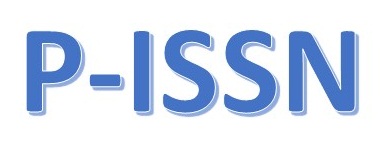Hubungan Kontrol Diri dengan Media Sosial Guna Membangun Personal Branding pada Siswa
Abstract
This research aims to determine the relationship between self-control and social media in order to build personal branding in class XI students at SMK Muhammadiyah Gamping. The method in this research is correlated with quantitative research. The population in this study was 66 class XI students. Data collection instruments use scales, namely, self-control scale, personal branding scale and social media scale. The data analysis technique used is multiple correlation analysis. Based on the results of data processing, it is known that the sig value of the self-control, social media and personal branding variables is 0.402. These results show that the three variables have a sig value > 0.05, which means the data is normally distributed so it can be concluded that high self-control can be a reference for managing, controlling and leading to a positive direction in using social media so that students' personal branding abilities increase. Novelty in this research can be seen if students have high self-control and use social media wisely, then students' personal branding will increase.
References
Afrilia, A. M. (2018). Personal Branding Remaja Di Era Digital. Mediator: Jurnal Komunikasi, 11(1), 20–30. Doi.Org/10.29313/Mediator.V11i1.3626
Al Aziz, A. A. (2020). Hubungan Antara Intensitas Penggunaan Media Sosial Dan Tingkat Depresi Pada Mahasiswa. Acta Psychologia, 2(2), 92–107.
Arumsari, C. (2016). Konseling Individual Dengan Teknik Modeling Simbolis Terhadap Peningkatan Kemampuan Kontrol Diri. Jurnal Konseling Gusjigang.
Budiargo, D. (2015). Berkomunikasi Ala Net Generation. PT Elex Media Komputindo.
Cahyono, A. S. (2016). Pengaruh Media Sosial Terhadap Perubahan Sosial Masyarakat Di Indonesia. Jurnal Ilmu Sosial & Ilmu Politik Diterbitkan Oleh Fakultas Ilmu Sosial & Politik, 9(1), 140–157.
Dwi Marsela, R., & Supriatna, M. (2019). Kontrol Diri : Definisi Dan Faktor. Journal Of Innovative Counseling : Theory, Practice & Research, 3(2), 65–69. Http://Journal.Umtas.Ac.Id/Index.Php/Innovative_Counseling
Fasilita, D. A. (2012). Kontrol Diri Terhadap Perilaku Agresif Ditinjau Dari Usia Satpol PP Kota Semarang. Journal Of Social And Industrial Psychology, 1(1), 28–33.
Haroen, D. (2014). Personal Branding. PT Gramedia Pustaka Utama.
Suharsimi, Arikunto. (2013). Prosedur Penelitian Suatu Pendekatan Praktik. Jakarta: Rineka Cipta.
Sugiyono. (2016). Metode Penelitian Pendidikan Pendidikan Pendekatan Kuantitatif, Kualitatif, Dan R&D. Bandung: Alfabeta.
Sugiyono. (2015). Metode Penelitian Pendidikan Pendidikan Pendekatan Kuantitatif, Kualitatif, Dan R&D. Bandung: Alfabeta.
Stevani, Widayatmoko. (2017) Kepribadian Dan Komunikasi Susi Pudjiastuti Dalam Membentuk Personal Branding Universitas Tarumunegara. Jurnal komunikasi
Tripambudi, B., & Indrawati, E. S. (2020). Hubungan Antara Kontrol Diri Dengan Perilaku Konsumtif Pembelian Gadget Pada Mahasiswa Teknik Industri Universitas Diponegoro. Jurnal EMPATI, 7(2),597603.Https://Doi.Org/Https://Doi.Org/10.14710/Empati.2018.21683
William M, P. O. (2016). Hate Crime And Bullying In The Age Of Social Media-Conference Report.
Copyright (c) 2023 Muhammad Rofai Simorangkir, Ulfa Danni Rosada

This work is licensed under a Creative Commons Attribution 4.0 International License.

















